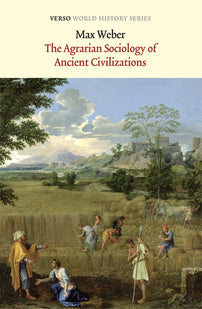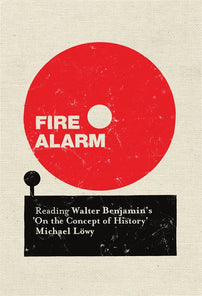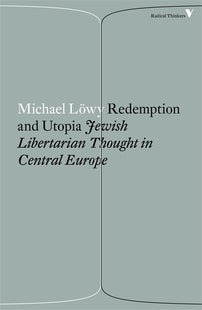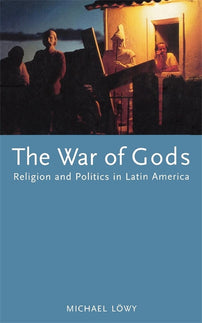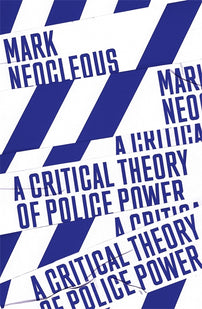Max Weber, victim of police violence
Sonia Herzbrun-Dayan, Michael Löwy and Eleni Varikas on Max Weber

To justify the brutal police violence under his government, unprecedented since 1961, Macron and his ministers refer to the state’s ‘monopoly of legitimate violence’, thus grossly falsifying the thinking of sociologist and political theorist Max Weber.
Faced with numerous protests denouncing the violence of the ‘forces of law and order’ against unarmed demonstrators, Emmanuel Macron responded with a historic phrase: ‘Don’t talk about repression and police violence. These words are unacceptable in a state governed by the rule of law’ (2 March 2019).
This is an almost ideal-typical example (in Max Weber’s terms) of what could be called ‘fake political science’.
In fact, the sentence is highly ridiculous: there is no rule of law in the world that has not resorted to illegal and illegitimate forms of police violence at some point in its history. For example: the French Republic. We will not recount here all the violence of this type since France became a state governed by the rule of law in 1944. A single example is sufficient: 17 October 1961. France was indeed a state governed by the rule of law, the Constitution was in force, Parliament was sitting. Yet a peaceful demonstration of Algerians was drowned in blood by the police: hundreds were killed, many of their bodies thrown into the Seine. The person responsible for this massacre was the Paris prefect of police, Maurice Papon (tried and condemned, much later, for other reasons: crimes against humanity, collaboration with the Nazi occupiers in the genocide against the Jews).
Admittedly, the police violence in Macron’s realm over the last two years, starting with the repression of Gilets Jaunes movement, is not equivalent. They have none the less seen the most brutal attacks by the forces of law and order against unarmed demonstrators since the end of the colonial war in Algeria. This violence has been carried out using methods – strangulation, flooring, etc. – and a panoply of repression forbidden in most European countries: LBDs (‘Defensive Bullet Launcher’, a fine euphemism!), ‘dis-encirclement grenades’, toxic tear-gas grenades, tasers, etc. But the good old truncheon has also been used to seriously injure a very large number of people.
Let’s recall the case of Geneviève Legay, a 73-year-old anti-globalisation activist, who was bludgeoned and thrown to the ground during a violent and totally disproportionate police charge in front of some hundreds of peaceful demonstrators. ‘The atmosphere was very quiet’ and the group was ‘composed mainly of women and elderly people, without breakages or projectiles’, according to the photographers (Le Monde, 25 June 2019).
[book-strip index="2" style="display"]The CCTV images show an official coming out of the police cordon at the start of the baton charge and deliberately pushing the elderly Gilet Jaune, who was wearing a black T-shirt and carrying a huge rainbow flag with the word ‘peace’. Taken to hospital with broken ribs and numerous fractures to the skull, she is still suffering from the after-effects of this attack. A few months later, the person in charge of this charge, Commissioner Souchi, received the bronze medal for internal security from Christophe Castaner, minister of the interior, which rewards ‘particularly honourable service and exceptional commitment’. Emmanuel Macron, for his part, declared a few days after the Nice demonstration: ‘This lady has not been in contact with the forces of law and order’, before specifying that, ‘when you are fragile... you do not go to places that are defined as forbidden and you do not put yourself in situations like this’. It is therefore the victims who find themselves guilty. Eighteen months later, however, the IGPN itself, known for its leniency towards offending police officers, was obliged to acknowledge the responsibility of the police in this assault.
According to journalist David Dufresne, under the present government police intervention has resulted in three deaths, five severed hands, 28 blindings and 341 serious head injuries. For sixty years – since 1962 – under various governments of the right, centre or left, nothing like this has been seen. Prior to Macron, state violence was mostly in the working-class suburbs, against people of colonial origin. The case of Adama Traoré, who died in 2016 in a gendarmerie in the Val-d’Oise, is paradigmatic of this violence with racist overtones. However, under the current government we are witnessing a kind of ‘democratisation’ of violence: no discrimination on the basis of colour, origin, nationality, age or sex! Everyone has the right to the truncheon, in complete equality.
Is this a legitimate defence by the forces of law and order against violent demonstrators armed with cobblestones and Molotov cocktails? That is far from being the case. Take the case of three dead people: Zineb Redouane, aged 80, was hit in the face by shrapnel from a teargas grenade when she tried to close the window of her flat on the fourth floor; Steve Maia Caniço drowned in the Loire after a police charge against a group singing too loudly during the night; and Cedric Chouviat, a delivery man, was the victim of a ‘muscular arrest’ (fractured larynx) while trying to film the police on his mobile phone,. None of these was taking part in a ‘forbidden demonstration’.
Who is responsible for this violence unprecedented in the history of post-colonial France? Police officers, no doubt. The racist, violent and repressive inclinations of many police officers are well documented by numerous testimonies, including from other peacekeepers outraged by this situation. But why did the abuses not reach such a scale before 2018? The police, after all, were the same. Here is the only possible explanation: these practices have been encouraged, authorised, legitimised and covered up by the authorities. Among others: Didier Lallement, Paris prefect of police, Christophe Castaner, minister of the interior, and Laurent Nunez, his secretary of state. A statement by the latter sums up the attitude of the authorities: ‘We have no regrets about the way we have conducted public order’ (2 June 2019, on RTL). As for Minister Castaner, here is his opinion on the issue: ‘I like order in this country and I defend the police and gendarmerie. I don’t say “but”. I defend them and that’s all’ (11 February 2020, before the National Assembly). But in the final analysis, the main person responsible is Jupiter himself, that is, Emmanuel Macron: in the Fifth Republic it is the President who defines the strategy and behaviour of the forces of law and order. We live in a state of law: the police only obey the orders of the legal and constitutional authorities. Jérôme Rodrigues, one of the leaders of the Gilets Jaunes who was blinded by an LBD bullet, made this observation, declaring in an interview published on 7 September 2020 in the online newspaper Le Monde moderne: ‘We are talking about police violence, but fundamentally we should be talking about government violence, it is they who simply use the police as a shield.’
During the Gilets Jaunes movement, however, the government’s position was not easy to defend. The video recordings made by demonstrators or witnesses no longer made it possible to hide the violence. The very idea that it could be compatible with the ‘rule of law’ was contested both nationally and internationally. As early as January 2019, Jacques Toubon, the human rights defender, called for the suspension of the use of defensive bullet-throwers, on the grounds of the ‘dangerousness’ of these weapons used by law enforcement agencies. At the beginning of March, it was Michelle Bachelet, UN High Commissioner for Human Rights, who asked the French authorities to investigate the police violence committed on the fringes of the Gilets Jaunes demonstrations since November 2018. She added that the Gilets Jaunes were demonstrating against ‘what they see as their exclusion from economic rights and participation in public affairs’. The argument that there was no police violence, but rather law-enforcement operations to counter the violence perpetrated by the demonstrators, was no longer valid.
Police violence was then not only recognised, but affirmed. Benjamin Griveaux, then government spokesperson, called for ‘firmness’, even though there was not the slightest injury to anyone when the door of his ministry was kicked in by Gilets Jaunes. And Gérald Darmanin, then minister of public accounts, hammered the nail in: ‘In a republican state, the monopoly of legitimate violence is that of the police and gendarmes.’
The formula was launched, a vague recollection no doubt from the studies that the minister had followed at the IEP in Lille. The reference to Max Weber was not yet present. Perhaps it had been bruited in the rather more nuanced comment by Thomas Legrand on the morning show of France Inter a few days before. Referring to the brutal arrest, to say the least, of Éric Drouet, whom he criticised for not having respected the rules in force during the demonstrations and ‘accepted by all’, the journalist acknowledged that the maintenance of order in France was perhaps not ‘up to the level’ of a great democracy. And he concluded as follows: ‘But in order to remain the rule of law and the liberal democracy it claims to be, it must also address its excesses in using what Max Weber called legitimate violence.’
From then on, politicians and journalists would constantly appeal to Max Weber, turning him into an apostle of legitimate, and therefore inescapable, state violence. In June 2020, the same Thomas Legrand reoffended: ‘The government cannot indeed accept the idea that the police are intrinsically violent, beyond of course the famous legitimate violence that the state is the depositary of, according to Max Weber. This validates the theory that the police are merely the armed wing of a system of domination.’ Having become interior minister, Gérald Darmanin, referring to ‘the action of the forces of law and order’ before the law commission of the National Assembly, no doubt wanted to show off his culture: ‘The police exercise a violence, certainly legitimate, but a violence, and it’s as old as Max Weber’s day.’ At a time when there were increasing protests around the world against the murder of George Floyd, who was suffocated to death by the police, and beyond that, against police violence in general, Gérald Darmanin no doubt thought he was being humorous, adding: ‘When I hear the words “police violence”, I personally choke. The police do exercise violence, but legitimate violence.’
The formula was launched. It would be taken up from the left to the far right. Thus Hadrien Desuin, in Causeur, wrote in January 2019: ‘Faced with the excesses of certain Gilets Jaunes and the increasing violence of thugs, the forces of law and order have a monopoly on legitimate physical violence in protecting civilians and businesses.’ He would emphasise in another article that the forces of law and order were simply doing their job: ‘the exercise of the “monopoly of legitimate violence”, to use the expression coined by Max Weber’. On the left, in a completely different spirit, no less a figure than David Dufresne – both in the film Un pays qui se tient sage (‘A Well-Behaved Country’) and in the fictionalized story Dernière sommation (‘Final Warning’), which denounces the repression against the Gilets Jaunes, gave a not insignificant place to the discussion of Weber’s formula. But the critical force of Weber’s thinking is never respected here.
What exactly did Weber say and what is the significance of his argument?
In Economy and Society, the great collection published posthumously by his wife Marianne Weber in 1921, the sociologist proposes his famous definition: ‘One can define as the ‘state’ a political institution,’ he writes, when ‘it successfully claims... the monopoly of legitimate physical restraint (Zwang)’. He goes on to add that the state uses many other means to enforce obedience, but ‘the threat and eventual application of violence’ is everywhere, ‘in case of failure of other means, the ultima ratio’. In his lecture on Politics as a Vocation (1919), Weber proposed a slightly different definition: ‘the state is the only human community which lays claim to a monopoly on the legitimated use of physical force’. But the fundamental idea, obviously, is the same.
This definition of the state by Weber has rightly been widely regarded as relevant by various currents of social science. Moreover, Weber himself, in Politics as a Vocation, cites in support of his argument – not without a touch of irony – no less a person than Leon Trotsky: “‘Every state is founded on violence’, Trotsky once said at Brest-Litovsk.’
However, it must be emphasised that this definition is perfectly Wertfrei, free of value judgements. The ‘legitimacy’ in question here has no intrinsic significance. It is not a moral principle, a Kantian categorical imperative, nor is it a universal legal rule. As the eminent Weber scholar Catherine Colliot-Thélène reminded us in an op-ed published in Le Monde on 19 February 2020, ‘the term “legitimate” in this definition does not have a normative meaning: it is not the equivalent of “just” or “rationally founded”. The state’s monopolisation of legitimate violence ... is a factual observation: a certain type of power, territorial, has succeeded in imposing its hegemony on other types of power that competed with it in previous centuries.’
For Weber, the concept of ‘legitimacy’ refers only to the belief in the legitimacy of power, its acceptance as legitimate by the subjects of domination. As we know, Weber distinguishes three types of legitimisation of domination (and therefore of the state monopoly of violence):
- rational (or statutory, or rational-bureaucratic): belief in the legality of existing regulations;
- traditional: belief in the sanctity of traditions and the authorities that claim them;
- charismatic: belief in the sacredness, heroism or uniqueness of a person.
The legitimacy Weber speaks of has no necessary connection with the rule of law. It is only a belief, the acceptance of a discourse of legitimisation, in any possible form of state, including absolutism (traditional legitimacy) or personal dictatorship (charismatic legitimacy).
To give an extreme example, which has nothing to do with the rule of law: the Third Reich was, without a doubt, a state in the Weberian sense. During its duration, it ‘successfully claimed the legitimate monopoly of physical coercion’. After the defeat of Nazism, soldiers and administrators (concentration camp officials, etc.) tried to ‘legitimise’ their crimes with two arguments:
- obedience to higher authorities (rational-bureaucratic legitimacy);
- the oath of loyalty to the Führer (charismatic legitimacy).
These arguments were rejected by the Nuremberg Tribunal, and the perpetrators were punished by imprisonment or hanging.
In a state governed by the rule of law, it is belief in the law that legitimises the monopoly of coercion. But one is perfectly entitled to reject the belief in the ‘legitimacy’ of violent practices by a state, either because they are against the law, which is often the case, or because one challenges certain laws. Before the death penalty was abolished,
and many others challenged the ‘legitimacy’ of this law. It can also happen that the majority of the population believes that the way in which the state exercises its monopoly on physical violence has ceased to be ‘legitimate’. This has been the case in France under the reign of Emmanuel Macron.
In situations of a crisis of domination, two powers can compete for the monopoly of physical coercion: this is what is known as situations of ‘dual power’ (as for example in France in 1944). But what we see more often, and this has been the case in France from the Liberation until today, is social movements which, possibly by attacking goods or buildings, aim at objects that are symbols of capitalist violence, state violence or colonial violence. These are not militias in the service of other political groups. They do not jeopardise the state monopoly of physical violence (against people) which, as we have seen, tends to be exercised shamelessly. Who would dare to compare the breaking of a shop window with the police murder, by suffocation, of a delivery man? Or with the mutilation of dozens of unarmed demonstrators by the ‘forces of law and order’?
The invocation of Weber to legitimise state violence is both magic and sophistry. Sophistry, since if state violence, any state violence, is legitimate, the very notion of violence loses its meaning. ‘Move along, there’s nothing to see.’ And this, moreover, by the magical invocation of an undisputed intellectual authority. But above all it shows that politicians and journalists who have appropriated this formula have not read Weber.
According to Weber, the state, which is only one dominating group (Herrschaftsverband) among others, has no legitimacy in itself. The physical coercion it exerts monopolistically, whereas churches, Weber says, have a monopoly on psychological coercion, is legitimate only in so far as it is recognised and accepted. Weber’s insistence on the notion of monopoly makes it possible to understand that the state stands in the gap between the exclusive use of violence without legitimation (or with a parody of legitimation) by a group which exercises a domination aimed at becoming total, and the loss or absence of monopoly of violence which is the hallmark of those states which today are said to have failed.
The state can only exist on condition that those whom it dominates adhere to the authority claimed by the dominators and submit to it. Max Weber thus raises an essential question for philosophy as well as for political anthropology, which is how and to what extent one can accept to experience the violence that is the specific means of the state. So there is indeed in relief here a critical reading of the state. After quoting and agreeing with Trotsky’s formula, Weber adds: ‘If there were social entities unaware of the concept of violence as a means, then the term “state” would cease to exist. And then something would have occurred which we call anarchy, in the very specific meaning of the word.’ In the literal sense, and without any pejorative connotation, anarchy is the absence of domination. Through his friendship with his former student Roberto Michels, but also through his love affair with Else von Richtofen, also a sociologist, and a brilliant and free woman, Weber could familiarise himself with libertarian theses.
A passage from his essay on scholarly neutrality is a striking example of the respect he had for this current of thought: ‘An anarchist’, he wrote, ‘who generally denies the validity of law as such... can be a good connoisseur of law. And if he is, the Archimedean point, so to speak, where he finds himself placed by virtue of his objective conviction – provided it is authentic – and situated outside the conventions and presuppositions that seem so obvious to the rest of us, may give him the opportunity to discover in the fundamental intuitions of current legal theory a problem that escapes all those for whom they are all too obvious… Indeed, for us, the most radical doubt is the father (sic) of knowledge’ (‘The Meaning of “Ethical Neutrality” in Sociology and Economics’; first German edition 1917).
By presenting him as an apostle of the state and its violence, in order to try to justify the unjustifiable, politicians and journalists have made Weber yet another victim of this same violence.
Translated by David Fernbach
Mediapart, 14 December 2020
Originally published at: https://blogs.mediapart.fr/michael-lowy/blog/141220/max-weber-victime-de-violences-policieres
